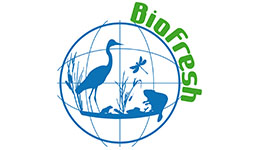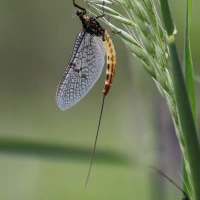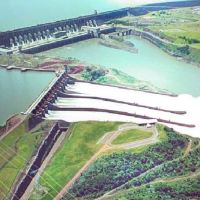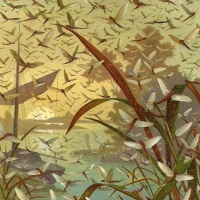Virguna’s Lake Edward under threat from oil exploration: WWF launches global campaign calling for Soco International to respect World Heritage Site.
 This guest post by Dr Susanne Schmitt flags the significance for Africa’s freshwater biodiversity of WWF’s major new campaign to stop oil exploration in the Virunga World Heritage Site. Susanne is WWF-UK’s Extractive and Infrastructure Manager.
This guest post by Dr Susanne Schmitt flags the significance for Africa’s freshwater biodiversity of WWF’s major new campaign to stop oil exploration in the Virunga World Heritage Site. Susanne is WWF-UK’s Extractive and Infrastructure Manager.
Today my organization launched a global campaign to stop oil exploration by the British oil company SOCO International in Virunga National Park, Democratic Republic of Congo (DRC). Virunga is famous as Africa’s first National Park (established 1925) and for its Mountain Gorillas. Virunga is the most biologically diverse protected area in Africa, including 216 endemic species. Based on this outstanding universal value Virunga National Park was declared a World Heritage Site in 1979, becoming one of only 193 natural WHS, which altogether cover less than 0.5% of the earth surface. Conservationist have bravely worked to protect the park in the face of the spill-over impacts of the Rwandan genocide (800,000 refugees living within the park for several years) and repeated civil unrest and conflict: in the last decade 130 rangers have given their lives defending this WHS against poachers and other incursions. WWF has decided its time to “Draw The Line”. We can’t let these efforts and sacrifice go to waste by risking to lose the park for commercial gain, because Soco is allowed to search for oil.

Map of Virunga National Park and World Heritage site showing Block V owned by Soco and the overlap with Lake Edward.
Soco is a FTSE 250 listed company that operates in the DRC Congo under the subsidiary, Soco Exploration and Production DRC Sprl (Soco). It has a license to explore for oil in the southern part of the park : Block V (see map) covers 2/3rds of the area of Lake Edward (the remaining 3rd is in Uganda). WWF is calling for Soco to pull out of Virunga and to publicly commit to stop oil exploration and exploitation in Virunga and to respect the Park’s current boundaries, in addition to publicly commit to respecting all World Heritage Sites and appropriate buffer zones. Following successful campaigning by WWF France, Total – who hold the Block III concession, which overlaps with the north of Virunga NP – have committed to stay outside the current boundaries of Virunga National Park, but have not made the wider commitment to respecting the boundaries of all WHS. The only major oil company that has made such a global commitment is Shell. We want Soco to act responsibly and do the same.

© naturepl.com/Christophe Corteau/WWF-Canon
I am appealing to freshwater scientists, policy makers and managers to support us in this campaign. Lake Edward together with Lake Albert feeds the White Nile. It is a Ramsar site, Important Bird Area and Key Freshwater Biodiversity Area. Lakes Malawi and Tanganyika are the most species rich areas in the Eastern African region with a maximum of 382 species recorded within a single 28 x 28 km grid cell, but Lakes Victoria, Albert, George, and Edward are close behind with up to 160 species recorded within a single 28 x 28 km grid cell.
Lake Edward’s productivity fell following the decimation of its 25,000 strong hippopotamus herd (the largest in Africa) during the civil unrest (1990-2007) but the hippo population and the lake’s fisheries upon which 28,000 jobs depend are recovering. The WWF-commissioned report ‘The Economic Value of Virunga” puts the current fisheries value at US$ 30m possible, which could rise to as much as US$ 90m with better management and restored hippo populations. Lake Edward and its wetlands are an irreplaceable part of our global natural heritage they deserve to be restored not damaged further.

© naturepl.com/Karl Amann/WWF-Canon
Generally speaking lakes are more bounded than, for example, the marine environment and thus the impacts of spills and other accidents could be serious and long lasting. This is particularly the case in the African Great Lakes due to long water retention times and low flushing rates, making them particularly vulnerable to pollution. Oil exploration involves seismic surveys from ships followed by test drilling. Seismic booms –generated with the use of explosives – are reported to cause localised fish kills and may have wider impacts on ecosystems and livelihoods. Industry insiders have told WWF that test drilling without leaks of oil or injected chemicals would be very difficult to achieve.
If Soco finds commercial viable oil reserves then it is likely to proceed to exploration or may sell the asset on to another oil company. Eastern DRC has a history of conflict involving multiple rebel factions, financing their operations from, so called, conflict minerals (diamonds, gold, coltan). Oil would potentially be adding another conflict resource, as pointed out by the International Crisis group’s 2012 report, Black Gold in the Congo. The building and operating of an oil infrastructure in this unstable context would be reckless from both environmental and human rights perspectives.
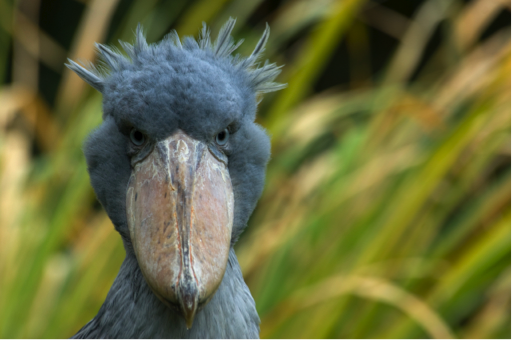
© naturepl.com/Edwin Giesbers/WWF-Canon
Lake Edward is not an isolated case. The string of Rift Valley lakes are in the spotlight for oil exploration: Lakes Albert, Tanganyika and Malawi all have active exploration concessions. As well as flagging wider threats to African freshwater biodiversity, WWF’s campaign highlights the bigger issues of apparently growing pressure to extract oil and minerals from within the boundaries of natural world heritage sites – see for example the threats to the Great Barrier Reef from plans for a huge port development to export coal.
You can support our campaign in several ways. By signing the petition on our campaign web-site, by re-tweeting us – #SOSvirunga, by adding comment to on-line news reports and by briefing yourself on WWF’s calls to Soco, governments and investors in our campaign advocacy report. In addition I would be grateful for comments on this post that could help strengthen the freshwater arguments of our campaign.
Thanks in advance.


